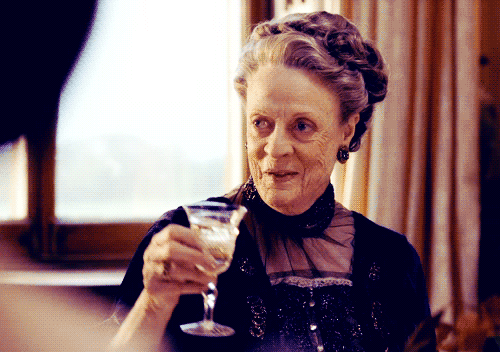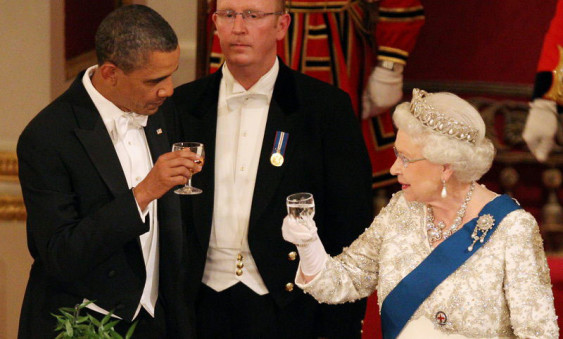Whether or not you have something to toast to this weekend – and hey, isn’t the fact that it’s the weekend reason enough to toast? – I thought I’d keep it short and sweet with a Friday fun fact. Namely, the origins of the toast itself.

Ever wonder why we raise a glass? Gif source: Giphy.
Even before it was actually called toasting, people raised glasses for pledges, oaths and general well-wishing (usually for the health of a sovereign or comrade). You can find references to the act in ancient Roman texts and even Homer’s Odyssey.
The term “toast” itself came into common back in the 16th century. Back then, wine and ale quality could be questionable but it was still safer than drinking water. So to temper any off notes, people would put a piece of toast with spices into their drink in order to flavor it and have a little snack (think of it as multi-tasking). Even Falstaff orders a servant named Bardolph to “Go fetch me a quart of sack; put a toast in’t.” in the Merry Wives of Windsor.
By the 18th century, it was customary to toast something or someone with every glass over the course of an evening. Someone who was the subject of such cheer would eventually become referred to as the “toast of the town.”

The Dowager Countess wishes to toast to your good health. Gif source: Tumblr.
As for the clinking of glasses, multiple theories abound. The most apocryphal (but doubtless one you’ve heard) was that by clinking glasses and sloshing wine from one cup to the other, each drinker was mutually assured that the potable contents were safe to drink. After all, who would risk poisoning themselves to get rid of an enemy?
Clinking glasses might also have come about as a way to heighten the pleasure of drinking by incorporating the sense of sound into the mix (drinking already incorporates sight, smell, touch and taste). Finally, the most superstitious and possibly my favorite of the reasons for clinking was the belief that making a loud noise would ward off the devil. And goodness knows how bedeviling drinking can be otherwise!

Wonder what these two were cheers-ing. Image source: Politico.
So as I raise a glass with friends this weekend, I’ll personally be toasting to the fact that you no longer need flavored toast to make wine taste good, and I’ll be sure to keep the devil at bay with plenty of loud clinking.
Interested in learning more about the history of toasting (and drinking itself)? Check out historian Paul Dickson’s book, Toasts: Over 1,500 of the Best Toasts, Sentiments, Blessings and Graces.

